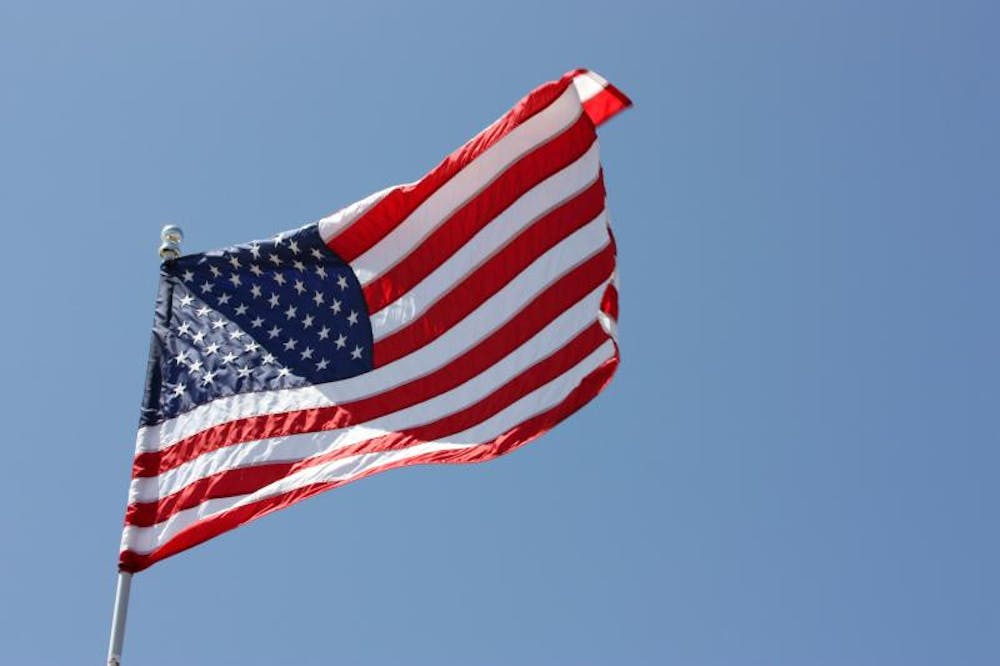Last summer, I heard a Vietnam War veteran speak at the Veterans Affairs Medical Center in Washington, D.C. He talked about his experiences in the war and the hardships he experienced in Vietnam. But it was what he experienced upon returning to the United States that was the toughest part of the war for him. He described returning home to people spitting on him and having chairs thrown at him. Granted, the Vietnam War was highly controversial, but in this instance, frustration with the war was horribly misplaced. The veteran urged the audience to learn to “separate the war from the warrior.” While the political context of the Vietnam War was substantially different from the wars the United States has fought in the 21st century, his emotional plea still rings true: Today, there’s a significant disconnect between how Americans see veterans and the actual, lived experiences of veterans. If we really want to demonstrate our gratitude for the sacrifices of Americans in uniform, we ought to re-examine our immediate perceptions of veterans and do more to consider their lives and struggles away from the battlefield. Only then can we pursue policies and programs that make veterans’ lives better and properly repay them for their valor.
First, it is easy to assume that our veterans voluntarily joined the military out of an extreme sense of patriotism or nationalism. But this is not always the case. Take Phoebe Gavin, a U.S. Army veteran, as an example. “I grew up in a dead-end town where there were no opportunities,” she wrote on Quora. She knew that joining the military would provide her with educational aid and free health care. These things were important for her because her parents were poor and she could only stay on her parents’ insurance if she went to school, which she couldn’t afford. Gavin wrote that she didn’t have the stereotypical inspiration to serve “God and country” that is often projected onto all veterans. Her motives for enlisting were inextricably linked to her well-being and livelihood. Similarly, Jon Mixon, a veteran of the U.S. Air Force, cited the poor economy of 1984 and described his motivation for enlisting simply: “I needed a job,” he wrote on Quora. People join the military for various reasons, and oftentimes it’s because it presents itself as the best option out there. This idea is only augmented by the countless number of military recruitment commercials that occupy our television and movie screens on a regular basis. While some of us may have the privilege to not bat an eye at such ads, others don’t have that privilege. For many Americans, military service is an instrument of social mobility — a key way to get ahead.
Second, for many veterans, the war doesn’t stop when they come home. Viral videos of children and pets running toward returning soldiers present only the brief, joyful moments of homecoming, while ignoring the internal struggles that quietly harm veterans in the long run. Veterans often face serious mental health challenges after their service, as the 2007 study “Bringing the War Back Home” found. The study looked at 103,788 American veterans treated at Veterans Affairs facilities after tours in Iraq and Afghanistan and found that 25 percent of these veterans received a mental health diagnosis, 56 percent received two or more mental health diagnoses and 31 percent overall received mental health or psychosocial diagnoses. These mental health challenges can, in turn, contribute to veterans’ inability to adapt to civilian life and find housing and employment; every night, close to 40,000 veterans are homeless. Simply put, war is traumatic and profoundly detrimental to the lives of those who serve.
Third, the deployments that servicemen and servicewomen must go on keep them away from their families for long periods of time — and that distance can have real, tangible consequences for relationships. When I was three years old, I went half a year without seeing my mom while she was actively serving in the Army. When she came home, she, my grandma and I went to Disney World. Despite going to the “The Most Magical Place on Earth,” it was not a memorable experience for me. The only thing I really remember from that day is treating my own mother as a stranger. I hadn’t seen her in so long that I’d come to see my grandma as my actual mom. While my mom likes to laugh about it now, I know it wasn’t easy for her to grapple with having her own child not recognize her. It’s one thing to acknowledge intellectually that veterans give up a lot to serve their country. But it’s a different thing to really put yourself in the shoes of Americans in uniform and their loved ones — to confront the difficulty of keeping in touch with your children or your parents thousands of miles away.
All this is to say that veterans deserve our respect — real, thoughtful and empathetic respect. A few weeks ago, student veteran John McCrillis ’17.5 told The Herald that, “A lot of veterans get stuck in this mold of being a veteran, and that’s all they’ll ever be. I didn’t want to have a war story be my definition of my character or who I am.” “Veteran” is a more complex identifier than you might think, and it’s important to explore the complexity of experiences it umbrellas before passing judgement or assuming that an entire group fits into a narrow stereotype. Respect doesn’t mean saying “thank you for your service” to every vet you see. But it does mean that we, as Americans, need to recognize the multidimensionality of the veteran experience.
Quentin Thomas ’21 can be reached at quentin_thomas@brown.edu. Please send responses to this opinion to letters@browndailyherald.com and other op-eds to opinions@browndailyherald.com.





